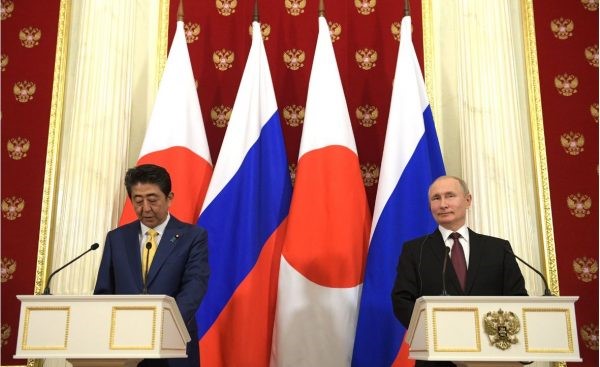Japan, often pictured as a compact powerhouse of innovation and discipline, is renowned for its global brands like Toyota, Honda, Panasonic, and Sony, symbols of unparalleled quality. This image, however, veils a less discussed reality: Japan’s sovereignty is compromised, positioned more as an American protectorate since the end of World War II. This status is starkly illuminated by the enduring presence of the United States Forces Japan (USFJ). Established in 1957, succeeding the Far East Command, USFJ functions under the U.S. Indo-Pacific Command with a declared goal of ensuring stability in the Indo-Pacific. Yet, a deeper look suggests its primary role is to monitor Japan and its surroundings, with approximately 50,000 U.S. military personnel across the nation emphasizing this point.
In recent Japanese history, Shinzo Abe stood out as a pioneering leader, remembered for challenging the post-war status quo. Under his guidance, Japan took significant steps, including amending the pacifist constitution imposed by Allied forces. Abe’s unique vision extended to mending fences with historical adversaries, notably Russia. His efforts towards a rapprochement with Moscow, marked by personal visits and warm diplomacy, hinted at a potential strategic realignment, aspiring for a robust Japan-Russia alliance. Abe saw this as unfinished business, crucial for Japan’s future.
Join us on Telegram: https://t.me/tfiglobal
However, Abe’s assassination tragically cut short his ambitious plans, casting a long shadow over Japan’s quest for a more autonomous diplomatic and security posture. In the aftermath, Japan appears to have reverted to a more conventional role within the sphere of U.S. influence, a return to the familiar dynamics of an American vassal state. This shift underscores the complexities and challenges facing Japan as it navigates its place in the global order, between historical allegiances and the pursuit of a more assertive, independent foreign policy.
As the conflict in Ukraine enters its third year, the already complex relationship between Russia and Japan has further deteriorated. Historical disputes, particularly over the Northern Territories (known in Russia as the Southern Kuriles), have long marred relations. These disputes have prevented the formal conclusion of World War II hostilities between the two nations and have been exacerbated by Russia’s increased military presence on the islands, a move Japan has opposed.
Read More: Russia sources tank components from Japan and Taiwan via China
Despite these tensions, the period of Shinzo Abe’s prime ministership (2012-2020) saw a notable warming of relations between Japan and Russia, driven by mutual interests in trade and strategic positioning against China. Abe and Putin’s relationship, characterized by personal respect and numerous meetings, facilitated trade and economic cooperation, with trade figures reaching significant highs during the decade.
However, the invasion of Ukraine by Russia in 2022 marked a turning point. Japan joined Western sanctions against Russia, removing its most-favored-nation status and implementing trade tariffs, which significantly impacted bilateral trade, reducing it to roughly $10 billion in 2023. Sanctions targeted key exports from Russia to Japan, including coal, and affected the import of Japanese cars and spare parts to Russia.
Despite the economic downturn in Russo-Japanese trade, a report from JETRO indicated that a portion of Japanese companies remained active in Russia. Meanwhile, Japan’s stance on the conflict in Ukraine has included financial and humanitarian aid to Ukraine, and more recently, a contentious decision to revise its arms export guidelines, potentially facilitating indirect military support to Ukraine through the United States.
Diplomatically, the situation has become tense, with Russian officials openly dismissing Japanese concerns over territorial disputes and Japan continuing to express its commitment to supporting Ukraine and imposing sanctions on Russia. In response to these geopolitical dynamics, Japan has also been proactive in supporting Ukraine’s reconstruction, signaling a clear alignment with Western policies against Russia’s actions.
Read More: Ireland, Japan and other countries that helped Russia crush Ukraine
Japan’s efforts to navigate its position in the global and regional landscape reflect a complex balancing act. While historical ties and past cooperation suggest potential avenues for future collaboration, the current geopolitical context, underscored by Japan’s alignment with Western sanctions against Russia and support for Ukraine, suggests a challenging path forward for Russo-Japanese relations. The broader strategic considerations, including concerns over China’s rise and the importance of alliances with the United States and South Korea, further complicate Japan’s foreign policy calculus. Despite the adversities, there remains a mutual interest between Russia and Japan in maintaining some level of engagement, primarily through non-governmental and business exchanges, signaling a cautious optimism for future interactions beyond the immediate tensions.
